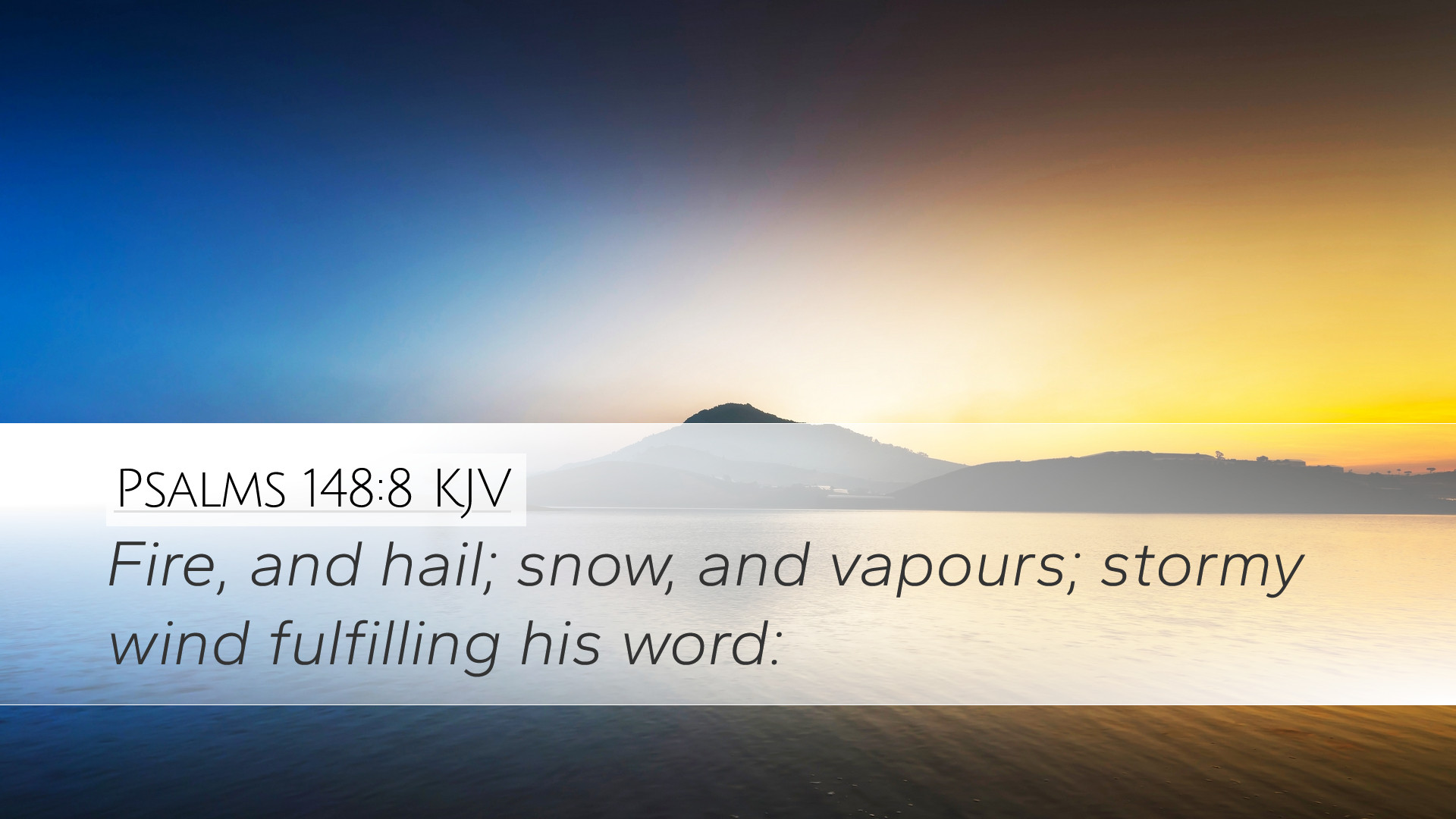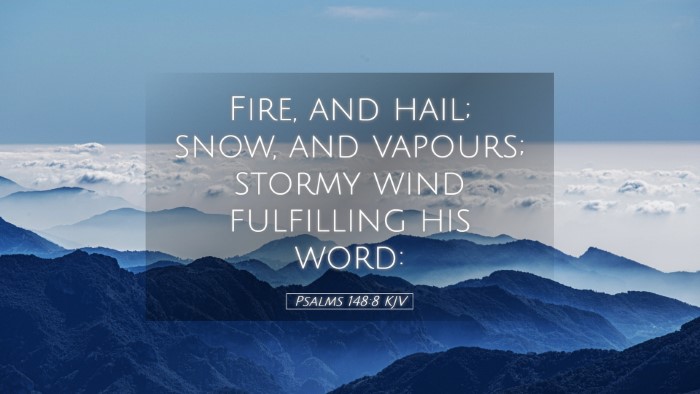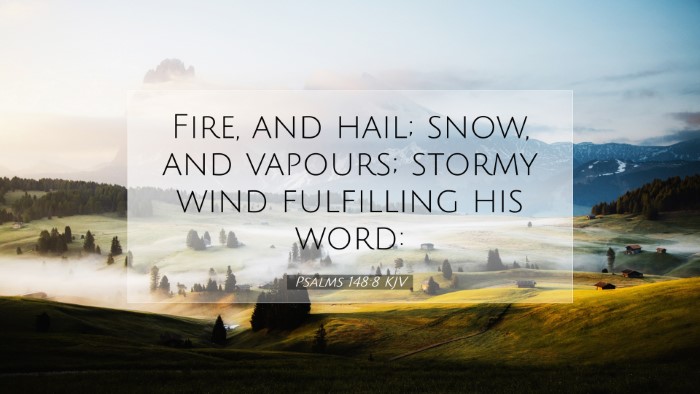Commentary on Psalms 148:8
Verse: Psalms 148:8 - "Fire and hail; snow and vapour; stormy wind fulfilling his word."
Introduction
Psalm 148 is a vibrant hymn of praise that calls upon all creation to join in worship of the Creator. The specific mention of natural phenomena in Psalms 148:8 highlights the sovereignty of God over the elements and the integral relationship between creation and the Creator. This verse serves as a reminder of God’s majesty and the inherent order within His creation.
Exegesis of Psalms 148:8
This verse identifies several elements of nature, emphasizing their roles in the divine economy:
- Fire: Often symbolizes destruction, purification, and the divine presence, reflecting God's power.
- Hail: Represents judgment and is often associated with God's wrath but can also be seen as a means of sustenance when considering agricultural perspectives.
- Snow: Symbolizes beauty and purity, signifying God's ability to cover our sins and create a fresh start.
- Vapour (or mist): Suggests the transient nature of life, pointing to God's control over every aspect of existence.
- Stormy wind: Declares the force of winds as instruments that fulfill God's purposes, indicating His sovereignty over chaos.
Theological Insights
According to Matthew Henry, this verse exemplifies how nature itself is responsive to the Creator’s command. The psalmist invites not only humans but all elements of creation to partake in praising God. This challenges humanity to recognize the omnipresent authority of God in all facets of life, including the natural world.
Albert Barnes highlights that every natural phenomenon serves a purpose in God's plan which reflects His word and intention. He suggests that God’s word governs creation, and the aspects of nature named in this verse are depicted as obedient servants that enact His will. This obedience points to a broader theme of universal praise where every created element upholds the divine order.
Natural Phenomena as a Commentary on God’s Character
Adam Clarke elaborates on the symbolic representation of these natural forces, providing a deeper theological dimension. Fire symbolizes the Holy Spirit's work in purging and refining; hail reflects the fear and reverence owed to God's judgment; snow illustrates His grace, covering the earth with beauty and purity; vapour denotes the ephemeral nature of life, and stormy wind serves as a reminder of God's power and the often-unpredictable nature of His will.
Fire and Hail
Clarke emphasizes that fire, although destructive, also offers warmth and light, paralleling how God’s presence can both evoke awe and comfort. Hail, being significantly damaging yet a form of precipitation, represents the balance between divine judgment and nurture.
Snow and Vapour
Snow's ability to blanket the earth rejuvenates it in spring, illustrating how God's grace revitalizes believers. Vapour, by illustrating life’s transient nature, calls believers to ponder their existence and relationship with God while reminding them of His continued control.
Stormy Wind
The stormy wind is a profound reminder of God’s might, demonstrating His ability to sweep through challenges and obstacles. As Clarke points out, it often seems chaotic, yet it is under the lordship of Christ, fulfilling His commands effectively.
Implications for the Believer
This psalm invites believers to see their lives in a larger context—one that acknowledges and embraces God's supreme authority over all creation. The call to worship in Psalms 148 encourages an attitude of reverence and gratitude towards God, inspiring believers to join with creation in praise.
Each individual must reflect on how they can participate in this divine chorus. By recognizing God's hand in their lives, especially through various trials represented by the natural elements, believers are called to respond in worship and obedience.
Praise as a Universal Response
The psalm serves as a microcosm of the broader biblical narrative, where all creation acknowledges the Creator. Matthew Henry notes that this calls humanity to a unique role; not only are they recipients of God’s grace, but they are also tasked with stewarding the earth and pointing others towards the wonder of creation.
Conclusion
Psalms 148:8 ultimately posits a worldview where every element of creation participates in a divine symphony of worship, inviting both reflection and action from all who read it. The interplay of power, order, and praise encapsulated in this verse indicates a God who is engaged with His creation and facilitates a space for His followers to echo that praise.
As pastors, students, and theologians reflect upon this verse, they are encouraged to incorporate the multidimensional praise of nature into their worship and teaching, recognizing that God's order extends through all aspects of existence, calling each piece to fulfill its role in the overarching narrative of creation’s testimony to the Creator.


